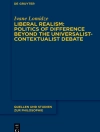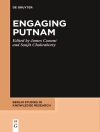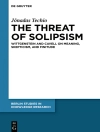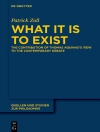This book, now in its fifth edition, provides a comprehensive introduction to Buddhist psychology and counselling, exploring key concepts in psychology and practical applications in mindfulness-based counselling techniques using Buddhist philosophy of mind, psychology, ethics and contemplative methods.
Tabella dei contenuti
Author’s Preface PART I 1. Buddhist Psychology and The Revolution in Cognitive Sciences 2. Basic Features of Buddhist Psychology: An Overview 3. The Psychology of Perception and Cognition 4. Psychology of Motivation 5. Emotions: Western Theoretical Orientations and Buddhism 6. Personality: Philosophical and Psychological Issues 7. Mental Health and Sickness 8. Mental-Wellbeing 9. Body-Mind Problem: Buddhist Contextualism 10. Towards A Holistic Psychology, Blending Thinking & Feeling 11. Buddhism as Contemplative Philosophy, Psychology and Ethics PART II 12. Nature of Counselling 13. Mindfulness-Based Therapeutic Orientations 14. Exploring the Content and Methodology of Buddhist Meditation 15. Stress Management 16. Sadness 17. Grief 18. Anger Management 19. Addictions 20. Pride and Conceit: Emotions of Self-Assessment 21. Greed, Generosity and Altruism Chapter References & Footnotes Glossary of Buddhist Concepts in Pali Questions for the Class Room Index
Circa l’autore
Padmasiri de Silva has a Ph D in East-West Comparative Philosophy and an Advanced Diploma in Counselling. He is currently Adjunct Research Associate at Monash University, Australia and has been Visiting Professor at the University of Pittsburgh, USA, NUS Singapore and University of Waikato, New Zealand. His publications include Buddhist and Freudian Psychology, Buddhism Ethics and Society, Environmental Philosophy of Buddhism, Mindfulness-Based Counselling.












